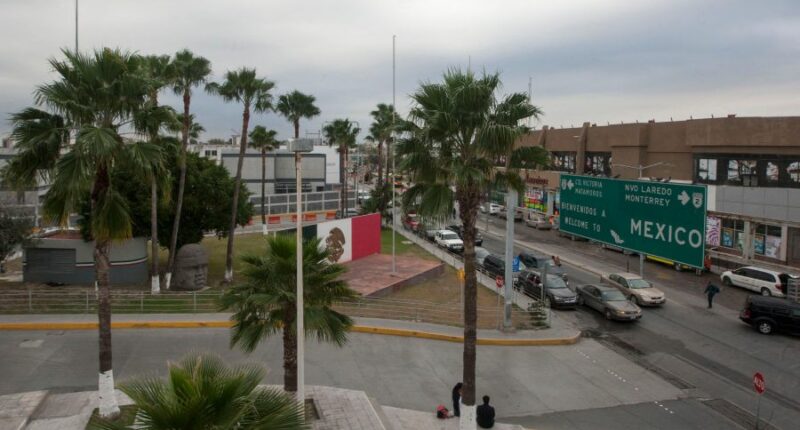Share this @internewscast.com

The Hernandez family, who were deported from South Texas to Mexico earlier this year, are facing difficulties accessing medical care for their critically ill daughter and are eager to return.
The Texas Civil Rights Project (TCRP) attorneys, representing this family, announced on Thursday that Juan and Maria, the parents, have been waiting at the Mexican border since February for the Department of Homeland Security’s approval to re-enter the U.S.
The parents, pseudonymously named here, are undocumented. They resided in the U.S. for over ten years before their deportation to Mexico when attempting to pass a checkpoint in South Texas.
They frequently traveled through the Border Patrol checkpoint in Sarita, Texas, to reach Houston for medical visits for their 11-year-old daughter, Sara, who had a brain tumor surgery.
However, in February, during a checkpoint stop, border agents identified the parents as undocumented despite presenting Sara’s medical documentation, resulting in their deportation.
Customs and Border Protection officers offered them the option of departing with or without their five children present in the vehicle, including Sara, prompting them to choose deportation with their children.
A 17-year-old son who had been out of town visiting friends and family was not in the vehicle and remains in the United States and is working “multiple jobs just to stay afloat,” TCRP Executive Director Rochelle Garza said.
“Maria asked me to convey this message to you all today. ‘We are not criminals. We have worked hard, paid our taxes, sent our kids to school. My children are U.S. citizens, and we need to be returned home. Please help us return to seek the care my daughter needs in order to survive.’ This case has been an uphill battle, but we must remember that the power of the people requires all of us to speak up and elevate stories like these,” Garza said.
Garza was flanked by several congressional representatives who in May visited the family in Monterrey, Mexico, where they have since been relocated.
This includes Texas Democratic U.S. Reps. Joaquin Castro and Sylvia Garcia, of Texas, as well as Adriano Espaillat, of New York.
“Their parents were told you either take them or they stay with us and you’ll never see them again. One of them, of course, is Sara, an 11-year-old little girl who has a life and death condition, and she has not been able to get the health care that she deserves because now she is in Mexico,” said Espaillat, chairman of the Congressional Hispanic Caucus.
“The Hernandez family followed the rules. They contributed to our community, and they built a life for their children. Back in Texas, they crossed checkpoints for medical appointments with letters from their hospital. They got their daughter, who we all know suffers from a rare brain tumor, the specialized care she needs to survive. They not only followed those rules to get her treatment, but they did what any family would do for their child who was sick and suffering. They got her the help that she needed. They did the right thing for their child, but they were detained, deported and punished for it,” Castro said.
When they were first deported they were sent across the border to Reynosa, Mexico, and there they feared extortion from Mexican cartels.
“When they arrived, nuns rushed out them out from the truck and told them to go inside, and under no circumstances should they go outside, because Mexican cartels were watching this shelter and would kidnap any U.S. citizen children that they saw because they assumed that they would have money, which this family does not. And so this family stayed inside,” said TCRP Lawyer Danny Woodward, who represents the family as part the organization’s Beyond Borders Program.
The family eventually was relocated to Monterrey, a city 100 miles west in the state of Nuevo León.
But Woodward says they want to return to the United States.
Sara recently had a seizure and officials say her medical condition is deteriorating.
Mexican officials will not allow her to enroll in school and the family cannot afford medical care, they say.
“Our entire country should be in tears because this is not the way we treat children in this country. This is not the way we treat families in this country,” Garcia said.
Woodward says on Wednesday he was told by U.S. Citizenship and Immigration Services officials that they are considering the case.
This a developing story. Look for updates at BorderReport.com.
Sandra Sanchez can be reached at SSanchez@BorderReport.com.











